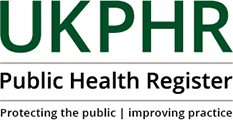Support in the Community – Launch of the RSPH Level 3 Certificate and Diploma in Health and Wellbeing
By Aaron Mansfield, Education Manager, RSPH
In October, we held the annual RSPH Health and Wellbeing Awards. The event is an opportunity to recognise and showcase outstanding provision that supports the public’s health and wellbeing, across the public, private and voluntary sectors.
It is always particularly invigorating to celebrate community-based projects and initiatives. Delivery that is rooted in the area that it serves, tailored to the needs of the local population and can identify those unique pinch-points in communities where health inequalities can take root. Services that bring people together and support individuals to find some of the answers to wellbeing issues in the communities where they live and in the people they live alongside.
This provision should never be seen as a replacement for well-funded, community-centred NHS care. It should most definitely be seen, however, as a complementary asset that is crucial to the effective working of the NHS and the health professionals within it.
A Citizens Advice survey of 1000 GPs in 2015 found that nearly a fifth of their time (19%) was being spent addressing social issues that were not primarily about health. The top three issues they were having to deal with were personal relationship problems (92%), problems with housing (77%) and problems with work/unemployment (76%).
Importantly, the majority of GPs did not feel that they had adequately advised their patient about these social issues. It is highly likely that a wellbeing-supporting organisation working in the same community as those GPs, would have been able to do so.
With this in mind, it has been encouraging to see the early steps made in the development of the social prescribing model across the UK. Health trainers, link workers and care navigators are working alongside GPs and other health professionals, spending time with individuals to understand their health and wellbeing needs and to signpost them to the relevant support groups or services available in their local community.
This is a model that relieves pressure on health professionals and allows them to focus on the vital role they have been trained to fulfil. It opens up life-changing opportunities for the individuals they are working with and it makes use of the expertise and support that is present in our communities. It is also, quite simply, an approach that works. Research from the University of Westminster has found an average of 28% reduction in demand for GP services and an average 24% reduction in A&E attendance following referral to social prescribing.
To support the roll out of social prescribing, RSPH has launched a Level 3 Diploma and Certificate in Health & Wellbeing, with the first delivery cohort currently underway to fifteen Heath Improvement Practitioners employed by Bolton NHS Foundation Trust.
The aim of the qualifications is to provide learners with the knowledge and skills needed to promote the health and wellbeing of individuals, groups and communities, and to support people to make improvements to their lives through positive behaviour change. Crucially, this is balanced with a focus on the ways in which health inequalities can make this change something that is very challenging for an individual to commit to.
The qualification also supports learners to build their knowledge of the community in which they work – something that is critical to effective social prescribing. It enables them to map the organisations that are active in their community and represent potential partners to whom individuals can be signposted. It also supports learners to build their understanding of the local policies that are in place to address health inequalities, along with the ways in which their job role relates to those initiatives.
Social prescribing is an idea whose time has come. It represents an opportunity to relieve pressure on health professionals, by connecting individuals to the fantastic organisations promoting health and wellbeing in communities up and down the UK. Our qualifications can support those on the frontline of these efforts, helping them to develop the skills and knowledge they need to seize this opportunity for us all.



Comments are closed.